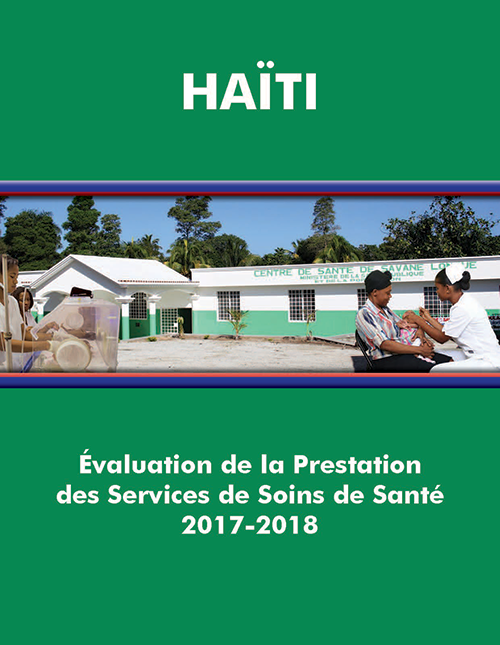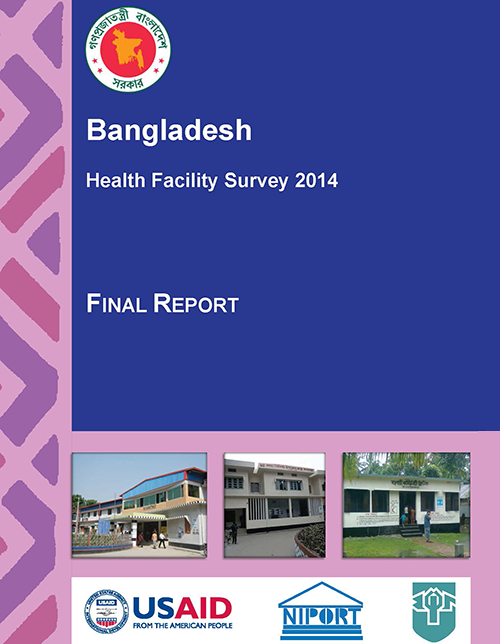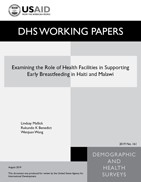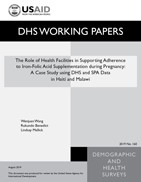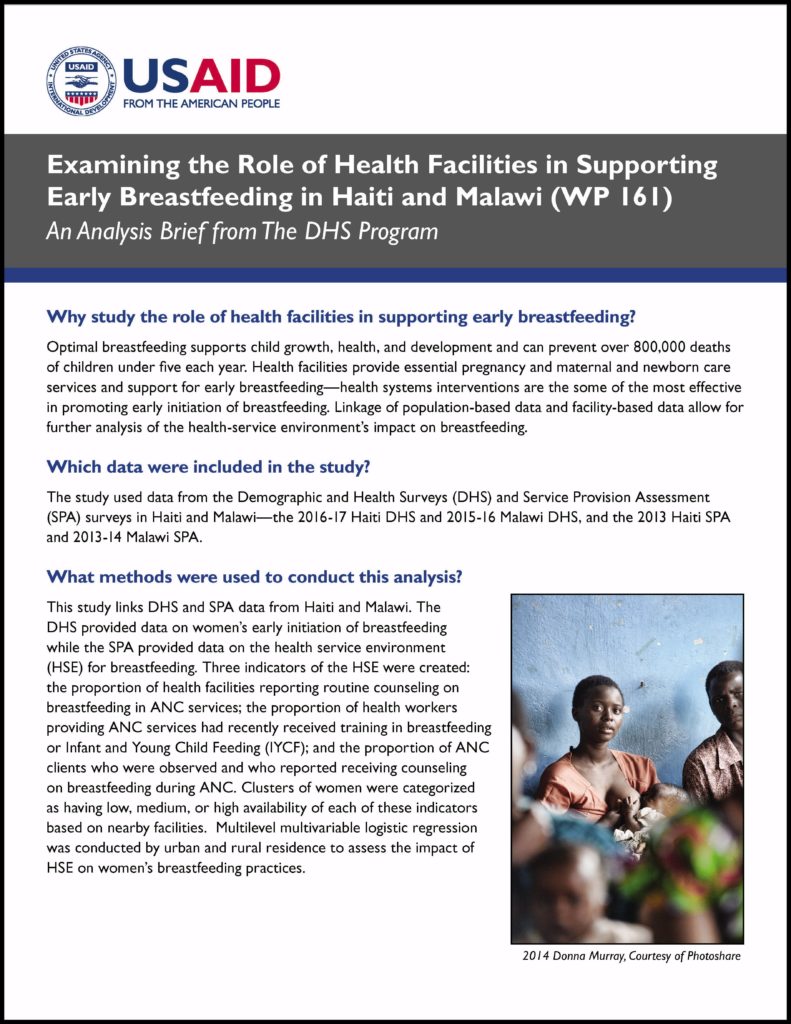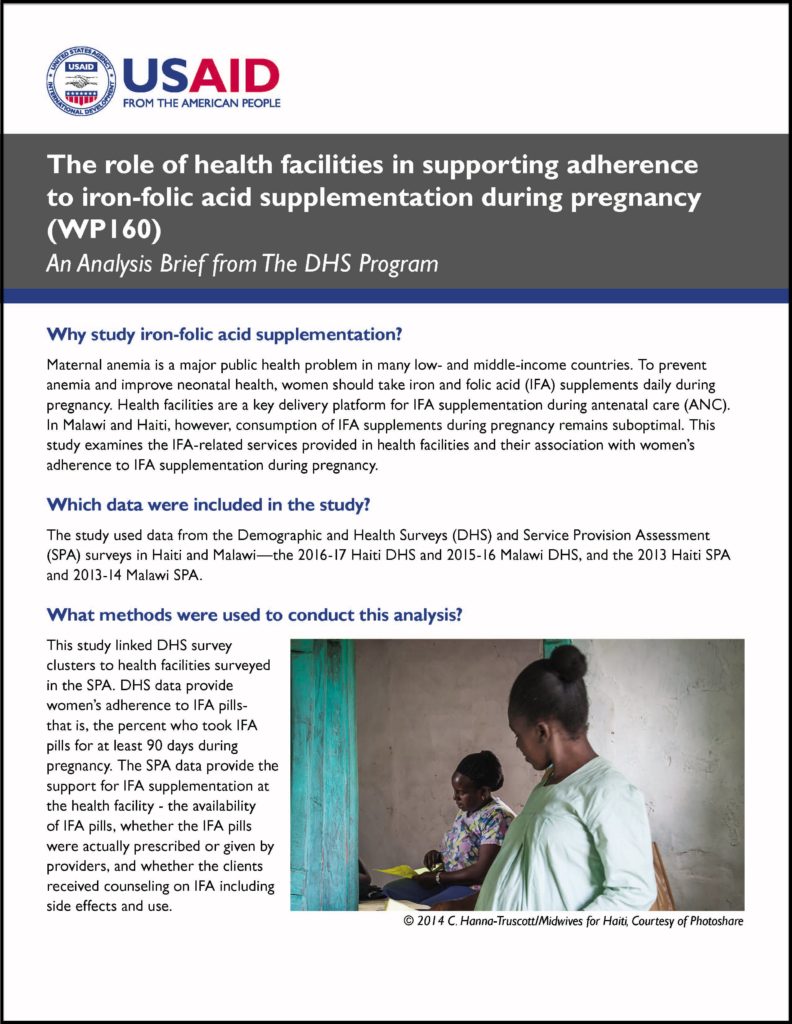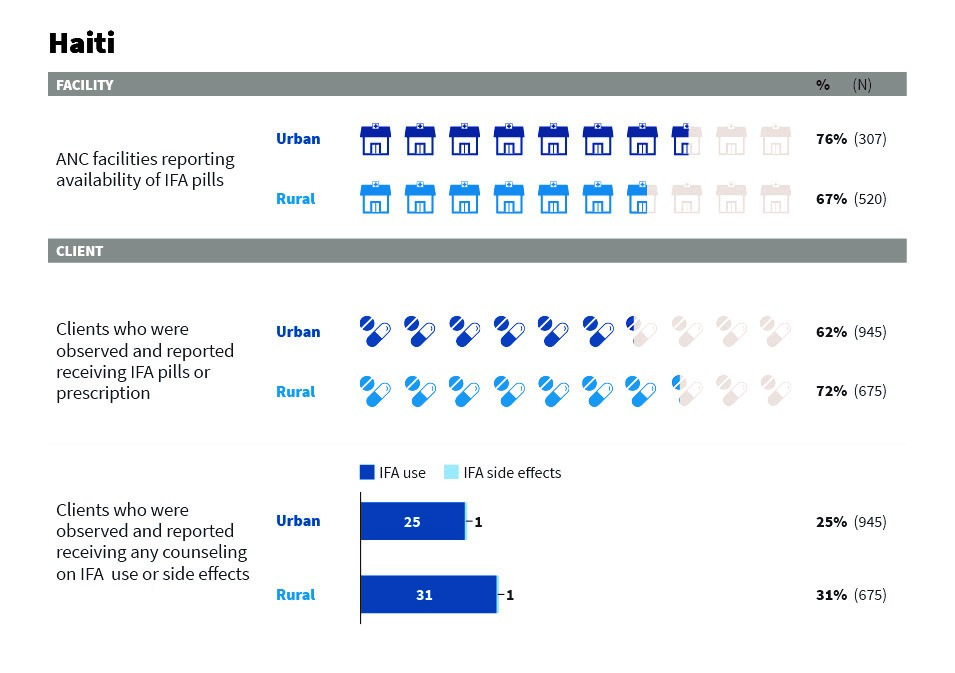Nutrition in the Health System: Linking SPA and DHS Surveys
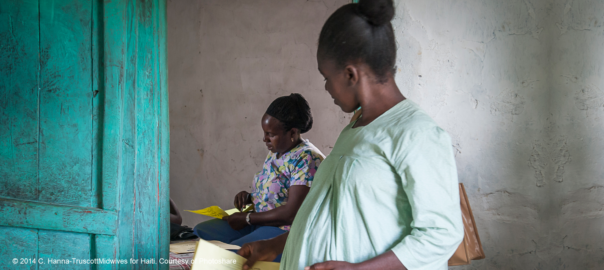

Global momentum on quality of care in the health system continues to expand. The United Nations Decade of Action on Nutrition (2016-2025) recognizes that the health system is a key pillar in providing universal coverage of essential nutrition actions. Reliable data for monitoring is central to understanding and improving the health system for nutrition. In addition to data from Health Management Information Systems, Service Provision Assessment (SPA) surveys also provide nationally representative facility information that can be used to explore the quality of facility-based health services.
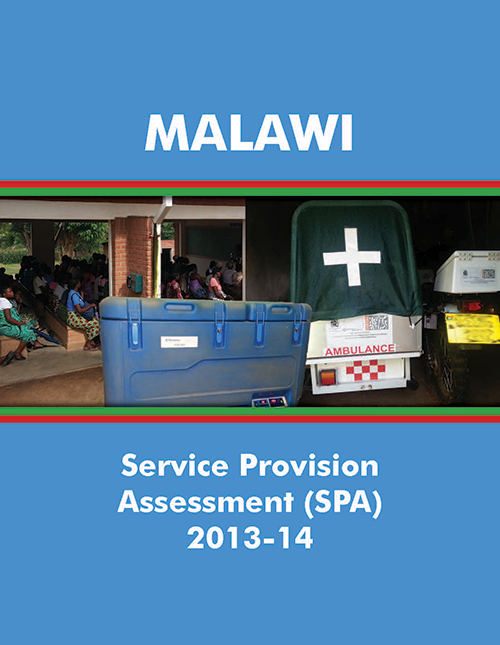
SPA surveys are a rich source of nutrition information providing insight on the availability and quality of services. Similarly, DHS surveys provide a significant amount of information about nutrition behaviors of populations. By linking SPA and DHS surveys, users can examine how the health facility environment contributes to these behaviors.
Two recently released DHS Working Papers examine the health service environment for key nutrition interventions: breastfeeding counseling and iron folic acid supplementation. The papers use Haiti and Malawi as case studies to describe the facility readiness, such as the availability of trained providers and essential medicines (see infographics below), and service delivery including observations of provider-client consultations of the two interventions in the context of antenatal care. The papers go on further to link SPA and DHS surveys to examine relationships between the health service environment and the nutrition behaviors.
The papers illustrate how linking SPA and DHS surveys can be useful for enhancing essential nutrition actions at the facility by identifying key programmatic gaps that can be strengthened to improve effective intervention coverage.
Download Working Papers 160 and 161 to find out more about the results in each country and their implications. And now, Analytical Briefs are available for DHS Program Analytical Reports. Download the Analytical Briefs for a shorter, more concise summary of these working papers.
Facility readiness to provide iron folic acid supplements
and counseling during antenatal care.

